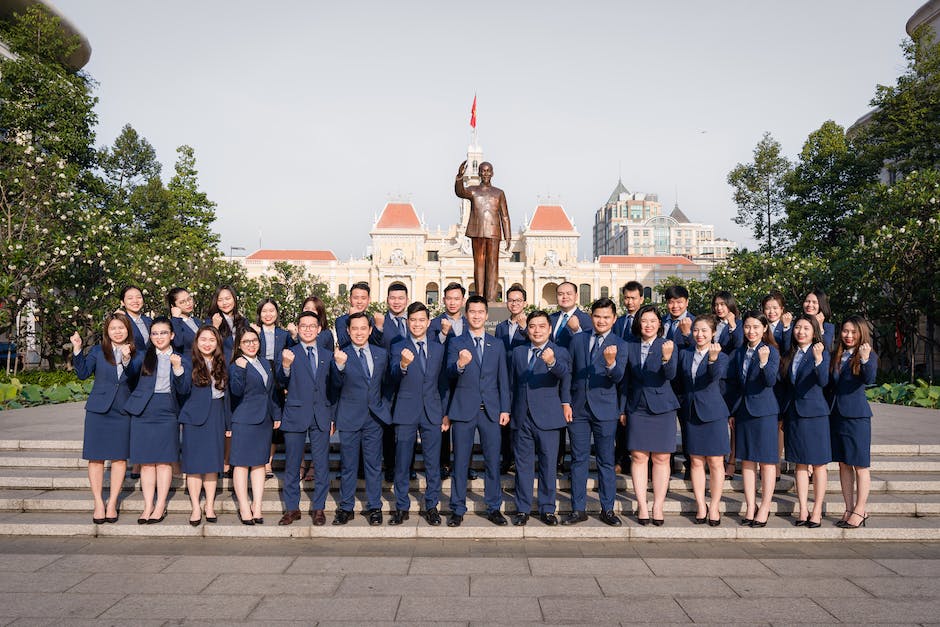Table of Contents
“Champion of the Free World: The Unforgettable Legacy of Franklin D. Roosevelt”
Introduction
“Champion of the Free World: The Influence of Franklin D. Roosevelt” is a book that explores the significant impact of Franklin D. Roosevelt on the global stage during his presidency. It delves into his leadership style, policies, and diplomatic efforts that positioned him as a key figure in shaping the world order during and after World War II. The book highlights Roosevelt’s role in promoting democracy, fostering alliances, and championing human rights, solidifying his reputation as a pivotal leader in the fight for freedom and democracy worldwide.
The Early Life and Political Career of Franklin D. Roosevelt

Franklin D. Roosevelt, often referred to as FDR, is widely regarded as one of the most influential presidents in American history. His leadership during the Great Depression and World War II transformed the nation and solidified the United States’ position as a global superpower. To understand the impact of FDR’s presidency, it is essential to examine his early life and political career.
Born on January 30, 1882, in Hyde Park, New York, Franklin Delano Roosevelt came from a privileged background. His family was wealthy and politically connected, with his distant cousin, Theodore Roosevelt, serving as the 26th President of the United States. Despite his privileged upbringing, FDR faced personal challenges from an early age. At the age of 39, he was diagnosed with polio, which left him paralyzed from the waist down. This setback, however, did not deter his ambition or his determination to make a difference in the world.
FDR’s political career began in 1910 when he was elected to the New York State Senate. During his time in the Senate, he championed progressive causes and gained a reputation as a reformer. In 1913, President Woodrow Wilson appointed him Assistant Secretary of the Navy, a position he held until 1920. This experience in the executive branch allowed FDR to gain valuable insights into the workings of the federal government and further solidified his political aspirations.
In 1921, tragedy struck when FDR contracted polio, which left him permanently disabled. Despite this setback, he refused to let his physical limitations define him. FDR’s battle with polio taught him resilience and empathy, qualities that would later shape his presidency. In 1928, he made a political comeback by winning the governorship of New York. As governor, FDR implemented progressive policies and gained national attention for his efforts to combat the effects of the Great Depression.
The Great Depression, which began in 1929, presented FDR with his greatest challenge yet. In 1932, he ran for president against incumbent Herbert Hoover and won by a landslide. FDR’s presidency marked a turning point in American history. He implemented a series of bold and innovative programs known as the New Deal, aimed at providing relief, recovery, and reform to a nation in crisis. Through programs such as the Civilian Conservation Corps and the Works Progress Administration, FDR put millions of Americans back to work and revitalized the economy.
FDR’s leadership during World War II further solidified his legacy as a champion of the free world. Following the attack on Pearl Harbor in 1941, the United States entered the war, and FDR mobilized the nation for a total war effort. He worked closely with Allied leaders, including Winston Churchill and Joseph Stalin, to defeat the Axis powers. FDR’s strategic vision and diplomatic skills played a crucial role in shaping the post-war world order.
In conclusion, Franklin D. Roosevelt’s early life and political career laid the foundation for his transformative presidency. Despite facing personal challenges, FDR’s ambition, resilience, and empathy propelled him to become one of the most influential leaders in American history. His progressive policies and leadership during the Great Depression and World War II reshaped the nation and solidified the United States’ position as a global superpower. FDR’s legacy as the champion of the free world continues to inspire leaders and citizens alike to this day.
Roosevelt’s New Deal and its Impact on the American Economy
Franklin D. Roosevelt, often referred to as FDR, is widely regarded as one of the most influential presidents in American history. His presidency, which spanned from 1933 to 1945, was marked by his ambitious and transformative policies aimed at pulling the United States out of the Great Depression. One of his most significant contributions was the implementation of the New Deal, a series of economic programs and reforms that had a profound impact on the American economy.
The New Deal was Roosevelt’s response to the economic crisis that gripped the nation in the 1930s. The Great Depression had left millions of Americans unemployed and struggling to make ends meet. Roosevelt recognized the need for immediate action and wasted no time in implementing his plan. Through a combination of government intervention, regulation, and public works projects, the New Deal aimed to stimulate economic growth and provide relief to those most affected by the Depression.
One of the key components of the New Deal was the creation of the Works Progress Administration (WPA). The WPA was responsible for employing millions of Americans in various public works projects, such as the construction of roads, bridges, and public buildings. These projects not only provided much-needed jobs but also helped to modernize the nation’s infrastructure. The WPA also funded the arts, employing artists, writers, and musicians to create works that reflected the spirit of the American people during this challenging time.
Another significant aspect of the New Deal was the establishment of the Social Security Act. This landmark legislation created a system of social insurance that provided financial support to the elderly, unemployed, and disabled. Social Security was a revolutionary concept at the time, as it represented a shift towards a more compassionate and welfare-oriented government. Today, Social Security remains one of the most important social safety net programs in the United States, providing vital support to millions of Americans.
In addition to these programs, the New Deal also introduced a range of financial reforms aimed at stabilizing the banking system and preventing future economic crises. The Glass-Steagall Act, for example, separated commercial and investment banking, reducing the risk of speculative practices that had contributed to the stock market crash of 1929. The Securities and Exchange Commission (SEC) was also established to regulate the stock market and protect investors from fraud and manipulation.
While the New Deal was not without its critics, there is no denying its impact on the American economy. The programs and reforms implemented by Roosevelt helped to stabilize the nation’s financial system, create jobs, and provide a safety net for those in need. The New Deal also laid the foundation for a more active role of the federal government in the economy, setting a precedent for future administrations.
In conclusion, Franklin D. Roosevelt’s New Deal had a profound impact on the American economy. Through a combination of government intervention, regulation, and public works projects, Roosevelt was able to stimulate economic growth and provide relief to those most affected by the Great Depression. The New Deal’s legacy can still be felt today, with programs like Social Security continuing to provide vital support to millions of Americans. Roosevelt’s bold and transformative policies cemented his status as a champion of the free world and left an indelible mark on American history.
Roosevelt’s Leadership during World War II
Champion of the Free World: The Influence of Franklin D. Roosevelt
Roosevelt’s Leadership during World War II
Franklin D. Roosevelt, the 32nd President of the United States, is widely regarded as one of the most influential leaders in American history. His leadership during World War II played a crucial role in shaping the outcome of the war and solidifying the United States’ position as a global superpower. Roosevelt’s strategic decisions, diplomatic efforts, and ability to inspire the American people were instrumental in leading the Allies to victory.
One of Roosevelt’s key strengths as a leader was his ability to make tough decisions and take decisive action. In the early years of the war, he faced the challenge of balancing the need to support the Allies without directly involving the United States in the conflict. Roosevelt implemented the Lend-Lease Act, which allowed the United States to provide military aid to countries fighting against the Axis powers. This decision not only helped the Allies, but also positioned the United States as a major player in the war effort.
Roosevelt’s leadership was also evident in his diplomatic efforts to build and maintain alliances with other nations. He recognized the importance of working together with other countries to defeat the Axis powers. Roosevelt played a key role in the formation of the United Nations, an international organization aimed at promoting peace and cooperation among nations. His diplomatic skills and ability to build consensus were crucial in bringing together countries with different interests and ideologies.
Furthermore, Roosevelt’s ability to inspire and rally the American people was a defining characteristic of his leadership during World War II. Through his fireside chats, Roosevelt effectively communicated with the American public, providing updates on the war and instilling a sense of unity and determination. His speeches, such as the famous “Four Freedoms” speech, articulated the values and principles for which the United States was fighting. Roosevelt’s ability to connect with the American people and convey a sense of purpose was instrumental in maintaining support for the war effort.
In addition to his strategic decisions, diplomatic efforts, and ability to inspire, Roosevelt also demonstrated strong leadership in his management of the war effort. He appointed capable military leaders, such as General Dwight D. Eisenhower, and provided them with the resources and support they needed to succeed. Roosevelt understood the importance of coordinating military operations and ensuring that the United States and its allies were working together effectively.
Roosevelt’s leadership during World War II had a lasting impact on the United States and the world. His strategic decisions, diplomatic efforts, ability to inspire, and effective management of the war effort were instrumental in leading the Allies to victory. Roosevelt’s vision for a post-war world based on freedom, democracy, and international cooperation laid the foundation for the United States’ role as a global superpower in the decades that followed.
In conclusion, Franklin D. Roosevelt’s leadership during World War II was characterized by his ability to make tough decisions, build alliances, inspire the American people, and effectively manage the war effort. His influence on the outcome of the war and the shaping of the post-war world cannot be overstated. Roosevelt’s legacy as a champion of freedom and democracy continues to resonate today, reminding us of the power of strong leadership in times of crisis.
The Legacy of Franklin D. Roosevelt and his Influence on American Politics
Franklin D. Roosevelt, often referred to as FDR, is widely regarded as one of the most influential presidents in American history. Serving as the 32nd President of the United States from 1933 until his death in 1945, Roosevelt left an indelible mark on American politics and society. His legacy is characterized by his transformative policies, his leadership during the Great Depression and World War II, and his commitment to social and economic reform.
One of the key aspects of Roosevelt’s legacy is his New Deal, a series of programs and policies aimed at combating the effects of the Great Depression. Faced with an economy in shambles and widespread unemployment, Roosevelt implemented a range of measures to stimulate economic recovery and provide relief to those in need. The New Deal included initiatives such as the creation of the Civilian Conservation Corps, the Works Progress Administration, and the Social Security Act. These programs not only provided jobs and financial assistance to millions of Americans, but also laid the foundation for the modern welfare state.
Roosevelt’s leadership during World War II further solidified his influence on American politics. As the country faced the threat of fascism and aggression from abroad, Roosevelt guided the nation through one of its darkest periods. He implemented policies to mobilize the economy for war, oversaw the creation of the Manhattan Project, which led to the development of the atomic bomb, and played a crucial role in the formation of the United Nations. Roosevelt’s ability to unite the American people and rally them behind a common cause was instrumental in the ultimate victory of the Allied forces.
Beyond his specific policies and actions, Roosevelt’s influence on American politics can be seen in his approach to governance. He believed in the power of the federal government to address social and economic issues and saw the presidency as a platform for enacting change. Roosevelt’s use of the radio, through his famous “fireside chats,” allowed him to directly communicate with the American people and build a sense of trust and confidence. His ability to connect with the public and articulate his vision for the country set a precedent for future presidents.
Furthermore, Roosevelt’s commitment to social and economic reform had a lasting impact on American society. His advocacy for workers’ rights, his support for labor unions, and his push for progressive taxation all contributed to a more equitable distribution of wealth and power. Roosevelt’s policies also helped to reshape the Democratic Party, making it more aligned with the interests of working-class Americans and minorities. His legacy can be seen in subsequent Democratic presidents, such as Lyndon B. Johnson and Barack Obama, who continued to champion social and economic justice.
In conclusion, Franklin D. Roosevelt’s influence on American politics is undeniable. Through his transformative policies, his leadership during times of crisis, and his commitment to social and economic reform, Roosevelt left a lasting legacy. His New Deal programs provided relief and recovery during the Great Depression, while his leadership during World War II united the nation and secured victory. Roosevelt’s approach to governance and his advocacy for social and economic justice continue to shape American politics to this day. As a champion of the free world, Franklin D. Roosevelt’s impact on American society and politics will be felt for generations to come.
Q&A
1. What is “Champion of the Free World: The Influence of Franklin D. Roosevelt” about?
“Champion of the Free World: The Influence of Franklin D. Roosevelt” is a book that explores the impact and influence of Franklin D. Roosevelt, particularly in relation to his role as a champion for freedom during World War II.
2. Who is the author of “Champion of the Free World: The Influence of Franklin D. Roosevelt”?
The author of “Champion of the Free World: The Influence of Franklin D. Roosevelt” is William E. Leuchtenburg.
3. What is the main focus of the book?
The main focus of the book is to examine Franklin D. Roosevelt’s leadership and influence on the global stage during World War II, highlighting his efforts to promote freedom and democracy.
4. What is the significance of Franklin D. Roosevelt’s influence as portrayed in the book?
The book highlights the significant impact of Franklin D. Roosevelt’s leadership and influence in shaping the outcome of World War II and his role in establishing the United States as a global superpower.
Conclusion
In conclusion, Franklin D. Roosevelt had a significant influence as the Champion of the Free World. Through his leadership during the Great Depression and World War II, he implemented various policies and initiatives that helped revive the American economy and establish the United States as a global superpower. His New Deal programs provided relief, recovery, and reform, while his diplomatic efforts and alliances played a crucial role in defeating the Axis powers. Roosevelt’s legacy as a transformative leader and advocate for democracy and human rights continues to shape American politics and international relations to this day.




